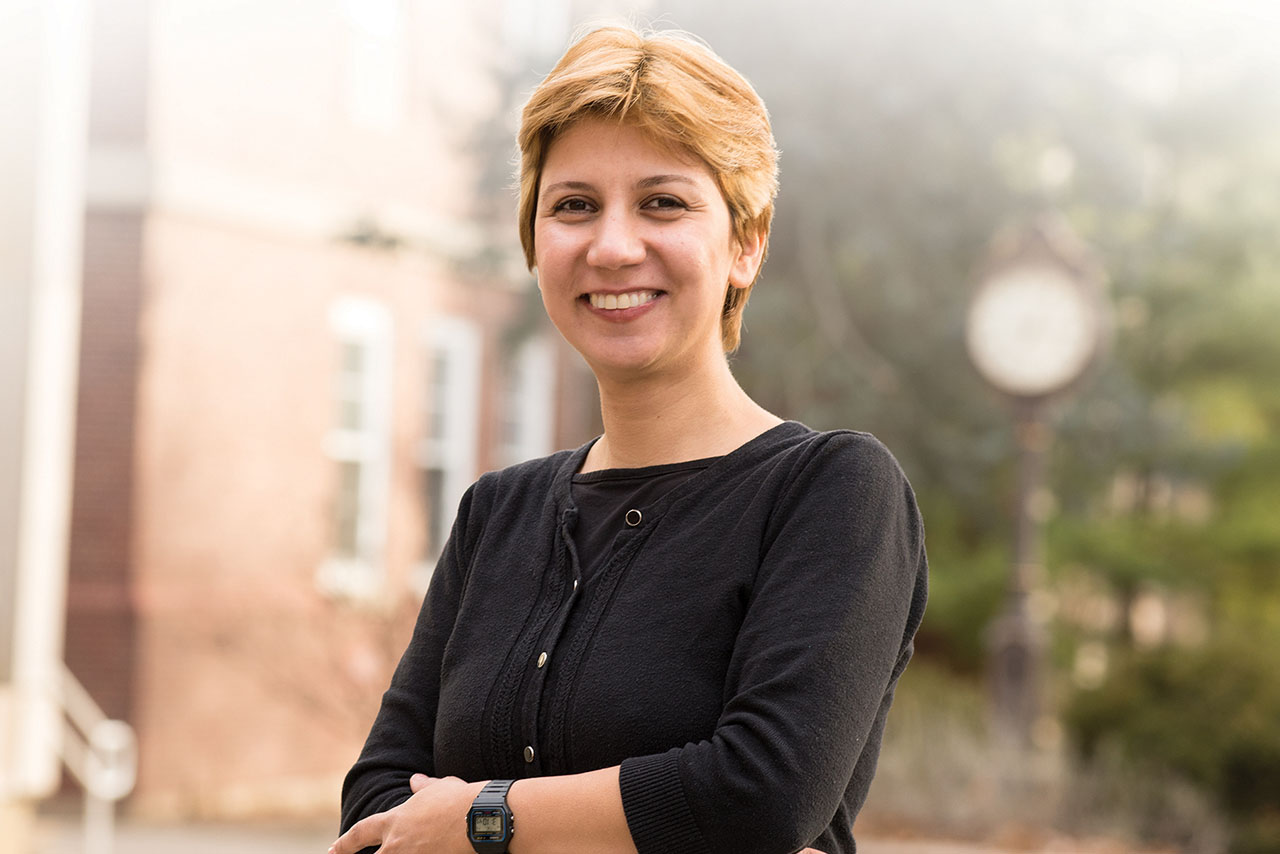Elahe Javadi impacts Redbirds every day in her role as an assistant professor in the School of Information Technology. But what many don’t know is that she also makes a difference in the lives of underprivileged children in her hometown of Hamedan, Iran, 6,569 miles away from Normal.
Since starting at Illinois State University in 2012, Javadi has returned to Iran for three summers. She began exploring opportunities to make a difference in the summer of 2014. After learning that it might be difficult to partner with a charity or government institution, she took matters into her own hands. With card games, a few Raspberry Pi computers, and two laptops of her own, Javadi began teaching computer programming at an orphanage in Hamedan.
During each programming session, she begins by describing the scenario to the students: “For example, there might be a creature on the screen and the students need to make it walk, and then have it change directions if it hits the walls or any side of the screen,” said Javadi. She helps the students hear the story and understand it as they turn it into tangible steps that they can then turn into code for the computer program. “Putting the steps into code is the same thing as saying something in another language,” she said.
Javadi works with a team of volunteers, including a psychologist and university professor, as well as various student helpers. “This is a big project, and I could not do it alone!”
The students taking computer programming at the orphanage range in age from 6 to 14, which, according to Javadi, “is a big age range, and they all have different abilities.” She sees some of the same children on her return trips from summer to summer, as there are few adoptions of children of that age range.
In Iran, computer programming is typically not taught in the public schools until high school, so Javadi’s students are receiving a rare learning opportunity. “These kids have the brainpower; they just don’t have the opportunity to grow. They are smart kids,” she said.
Javadi’s coding lessons go far beyond the computer screen. “Research has shown that the steps we talk about in computer programming help students develop computational thinking skills that can be used in all areas of life,” she said. “Students learn to analyze a situation and think about the steps they will take to solve the problem. The skills they are learning on the computer can translate to problem-solving at home or at school. I want to give them hope, give them a tool for success, and give them something fun to think about when they might have feelings of rejection or loneliness.
“I have a passion for children that have little hope or little love in their lives. Even if the children in the orphanage do not become programmers, the skills they learn will help them make better decisions in life. That is my greatest hope!”

